Japan faces ‘race against time’ to find quake survivors as death toll rises
Japan’s prime minister has said the country is facing a “race against time” to rescue quake survivors, after a powerful earthquake struck western Japan on New Year’s Day, reportedly killing more than 48 people.
According to the Japan Meteorological Agency the 7.6-magnitude quake, hit Ishikawa prefecture on the main island of Honshu on Monday, triggered tsunami waves more than a meter high, trapped people under collapsed buildings, caused a major fire, and destroyed roads.
“Very extensive damage has been confirmed, including numerous casualties, building collapses, and fires,” Fumio Kishida said during an emergency disaster meeting.
“We have to race against time to search for and rescue victims of the disaster,” he added.
“We must rescue them as quickly as possible, especially those who are trapped under collapsed structures,” Kishida said.
Ishikawa Governor Hiroshi Hase wrote in a social media post that roads have been cut in widespread areas by landslides or cracking, while in the port of Suzu “multiple” vessels had capsized.
An unnamed official in Ishikawa Prefecture told AFP on Tuesday that the death toll reached 48.
On Monday, waves at least 1.2 meters high hit Wajima, and a series of smaller tsunamis were reported elsewhere.
Warnings of much larger waves proved unfounded and on Tuesday Japan lifted all tsunami warnings.
The region experienced freezing temperatures overnight, as 45,000 households were left without electricity and numerous cities are grappling with water shortages.
A total of 62,000 people had been ordered to evacuate, according to the fire and disaster management agency after quakes as large as 5.6 were reported on Tuesday morning.
Defense Minister Minoru Kihara announced that 1,000 military personnel are currently gearing up to deploy to the region, with an additional 8,500 troops on standby. Furthermore, approximately 20 military aircraft have been dispatched to conduct aerial assessments of the damage.
Monday’s quake shook apartments in the capital Tokyo about 300 kilometers away.
Several major highways were closed around the epicenter, Japan’s road operator said, and bullet train services from Tokyo were also suspended.
Rescue efforts have been hindered by badly damaged and blocked roads, and a local airport was shut down due to runway cracks.
An official from Japan’s Nuclear Regulatory Agency said that after Monday’s quake, there were no signs of abnormalities at any radioactivity monitoring stations at the Shika nuclear power plant in Ishikawa.
Japan experiences hundreds of earthquakes every year and the vast majority cause no damage. However, a massive 9.0-magnitude undersea quake off northeastern Japan in 2011 triggered a tsunami and left around 18,500 people dead or missing.
It also swamped the Fukushima atomic plant, causing one of the world's worst nuclear disasters.
The ongoing cleanup activities near the Fukushima plant are still in their early stages. However, last summer, the government’s decision to release treated radioactive wastewater into the ocean sparked alarm in China and South Korea.
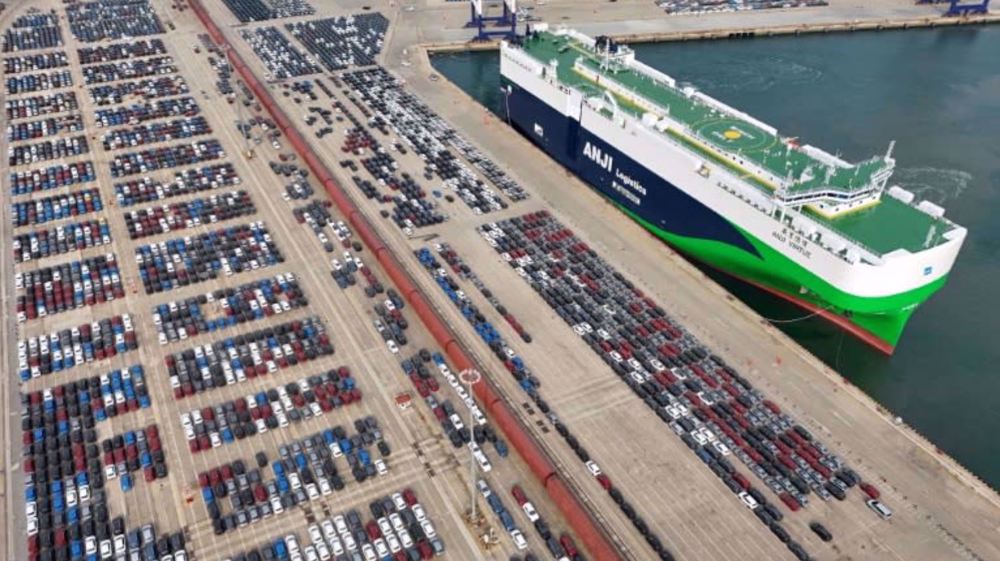
China ‘firmly’ opposes countries making trade agreements with US at its expense

China says stands with Malaysia, region in face of unilateralism
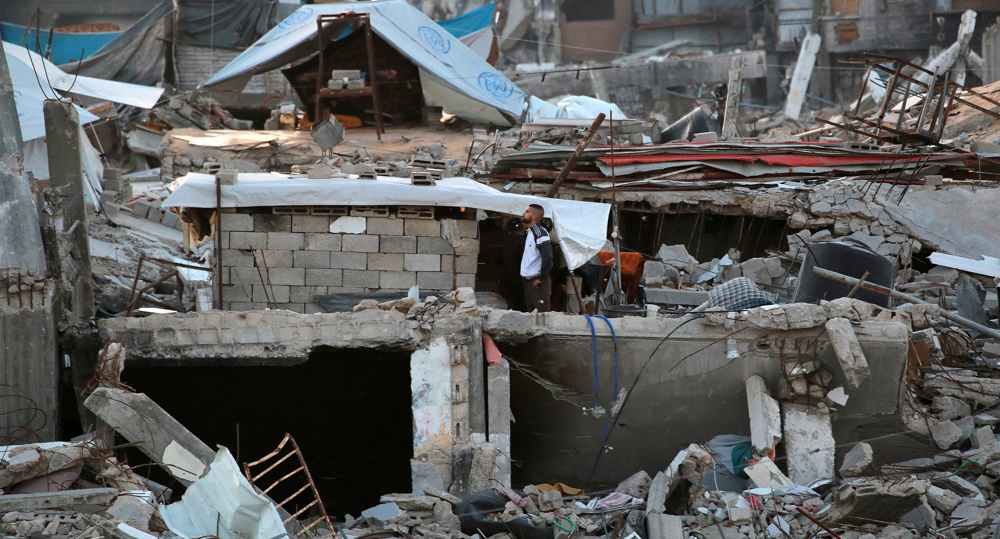
Maldives bans entry of Israelis in ‘resolute solidarity’ with Palestinians
Over 100 rabbis, cantors slam Trump for pro-Palestine campus crackdown
Nearly 30 Palestinians killed in fresh Israeli strikes on Gaza
VIDEO | Press TV's news headlines
FBI, local police raid homes of pro-Palestine activists in Michigan
Trump ratings low amid US economic turmoil
VIDEO | Trump tariffs: A wrecking ball!
Israel deprives Gazans of basic needs for ‘survival’: UN
South Africa has no choice but to support resistance against Israel's genocide in Gaza





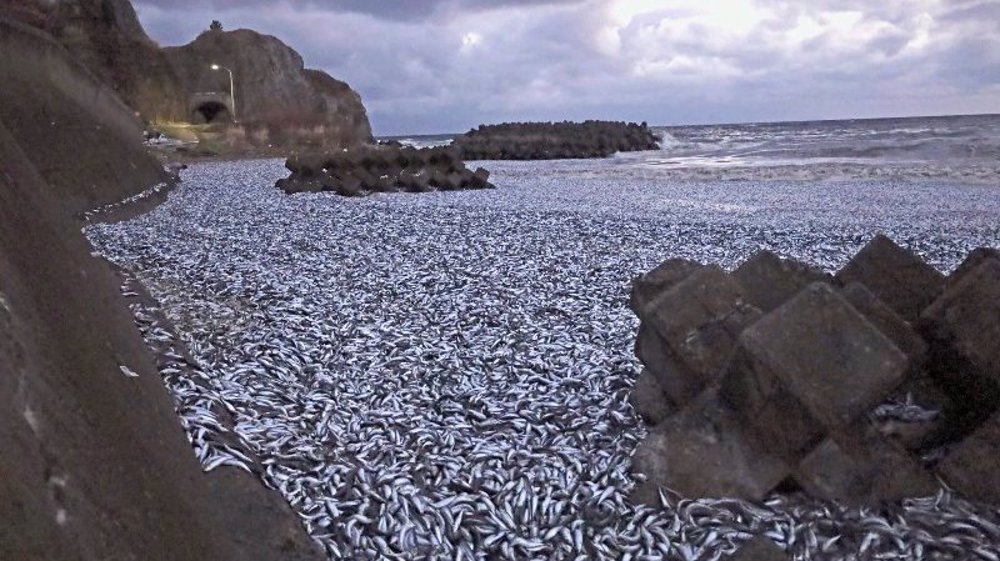
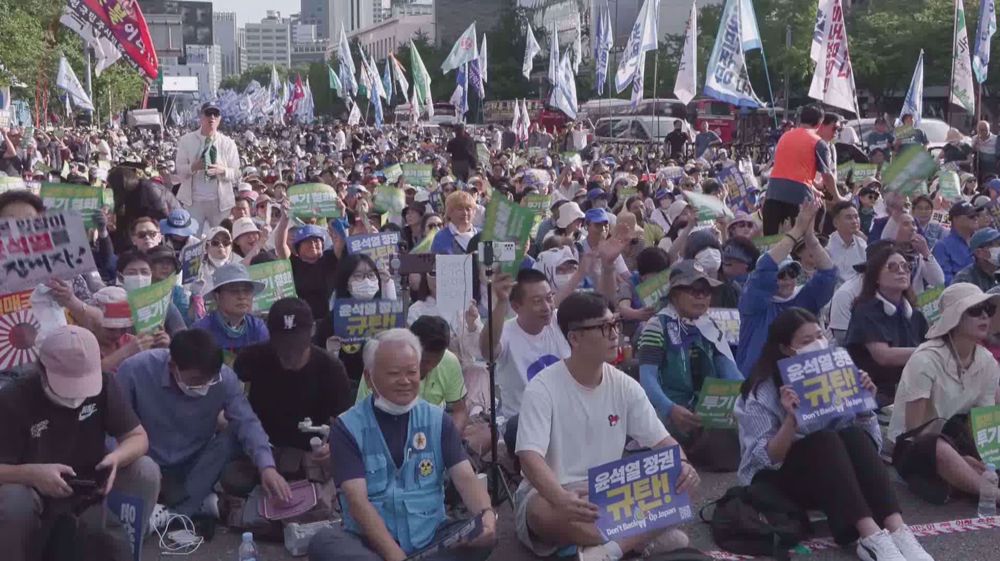
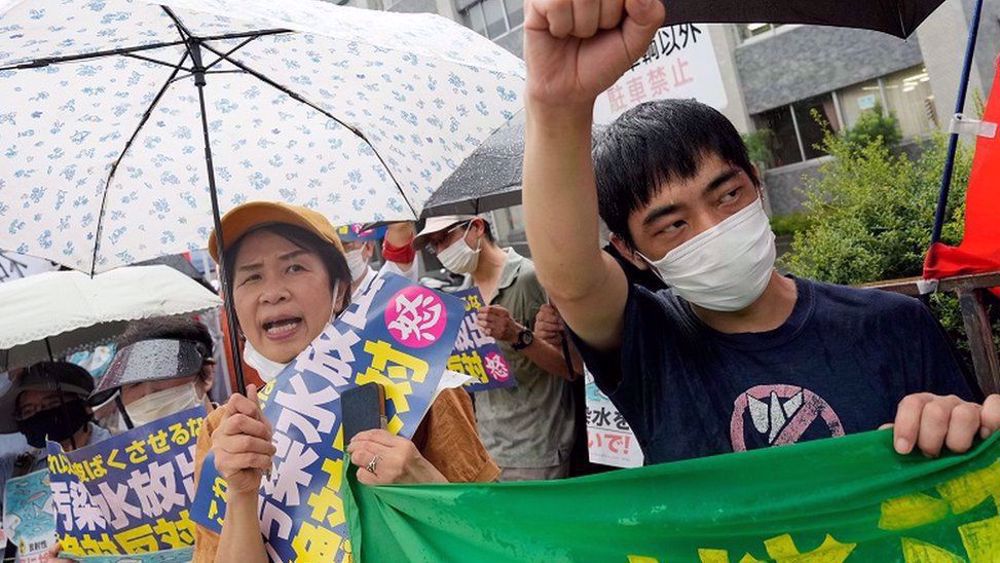
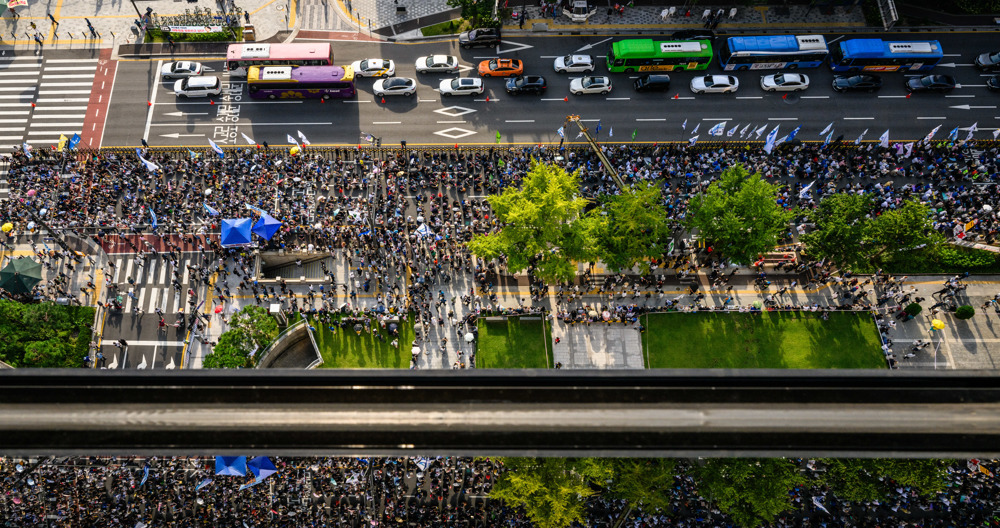

 This makes it easy to access the Press TV website
This makes it easy to access the Press TV website